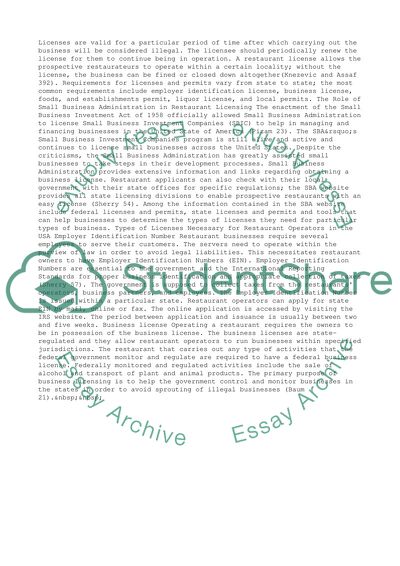Cite this document
(Licensing Requirement for Operating a Restaurant Coursework - 2, n.d.)
Licensing Requirement for Operating a Restaurant Coursework - 2. Retrieved from https://studentshare.org/management/1493093-legal-aspects-of-hospitality-management
Licensing Requirement for Operating a Restaurant Coursework - 2. Retrieved from https://studentshare.org/management/1493093-legal-aspects-of-hospitality-management
(Licensing Requirement for Operating a Restaurant Coursework - 2)
Licensing Requirement for Operating a Restaurant Coursework - 2. https://studentshare.org/management/1493093-legal-aspects-of-hospitality-management.
Licensing Requirement for Operating a Restaurant Coursework - 2. https://studentshare.org/management/1493093-legal-aspects-of-hospitality-management.
“Licensing Requirement for Operating a Restaurant Coursework - 2”, n.d. https://studentshare.org/management/1493093-legal-aspects-of-hospitality-management.


